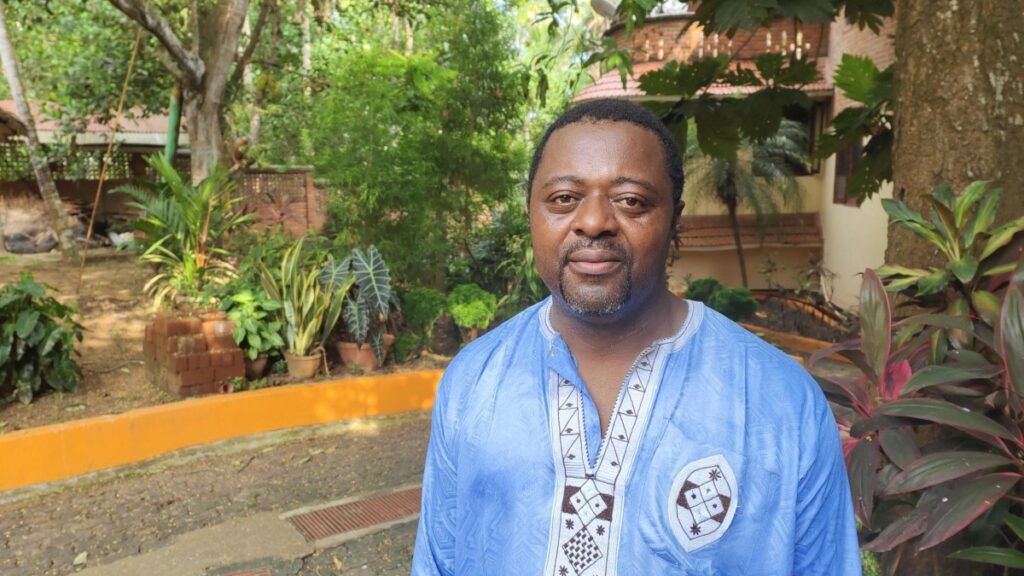Summary
Emmanuel has first-hand experience of how conflict and violence in Cameroon affects his and his family’s daily life. This is what drives him to making a difference. Emmanuel’s project is aimed at reducing youths’ vulnerability to unemployment, violence and crimes.
by Fuhbang Emmanuel Tanifum
Rekindling Hope
“If we don’t end the war, the war will end us” – H.G. Wells
The Plight of Bobo in Conflict-Stricken Bamenda
Bobo, a 22-year-old young man is one of the many youths between the ages of 15-35 living in the conflict-stricken town of Bamenda. Bamenda also known as Abakwa, is a city in northwestern Cameroon and capital of the Northwest Region. It is one of the two English-speaking regions out of ten regions in Cameroon. The city has a population of about 2.2 million people and is located 366 km (227 mi) northwest of the Cameroonian capital, Yaoundé.
Geographically, Bamenda belongs to a distinct area, known as the Cameroon Grassfields. It is located in the Western Highlands of the country at an altitude of 1000m – 3000 m. The surrounding landscape of the town is varied and includes small villages, grass-covered plateaus, wooded valleys, lakes, and numerous rivers. Many of the city’s inhabitants are English-speaking, and Cameroonian Pidgin English is the main language.
Life Before the Storm: Bamenda’s Peaceful Past
When I met Bobo, he was looking traumatized and seemingly in dire need of peace, security, and psycho-social assistance. When I asked him how this civil war has affected him personally, he said: “so negatively”. He narrated a pathetic story about how the armed conflict has affected him and his family. Before the advent of this violence in 2016, Bobo recounted how schools and other activities were operating normally in the town. His family had a stable means of income from their livestock and crop farming activities. Young people like him had the hopes to bury their old ones. Crimes were minimal.
The Escalation of Violence: The Ambazonia War
Bobo was in secondary school in a very peaceful schooling environment. He recounted how all these changed, in November 2016, when trade unions’ protests which were not properly managed turned violent. And now, what has become known as the “Ambazonia War of Independence or Anglophone Crisis” in the English-speaking part of Cameroon (North West and South West Regions of Cameroon) seems hopeless over seven years today, especially with the persistent deadlock between the government and separatists.
The ongoing tit-for-tat violence is not only steadily plunging the entire country into a civil war, but has resulted in thousands of civilian deaths(the absolute majority being youths), general insecurity, hostage takings for ransom, extortions, closure and burning of many schools and economic centers, destruction of infrastructure, burning down of villages, horrendous abuses of Human Rights, untold sufferings with hundreds of thousands of refugees in neighbouring countries and more than a million internally displaced persons.

A Desperate Relocation: Bobo’s Journey to Education
Bobo recounted how his parents had to displace him from an English-speaking region to the French-speaking part of Cameroon for him to complete his secondary education. He recalled how it was extremely difficult for him to survive out there in the French-speaking area due to limited means from his parents and language limitations. His family had lost livestock which was their stable means of livelihood and they are much traumatized.
Empowering Youth for a Peaceful Future- Rekindling Hope
When I asked him if he thinks young people like him have a role to play in transforming the violence and if so, what that role may be. He responded by saying that youths have a great role to play. These youths are facing serious problems due to this armed conflict. On both sides of the conflict, they are the ones fighting and dying, every day. They have lost stable educational, family, and economic environments due to the armed conflict.
They are traumatized, radicalized and their wider socio-economic needs are often ignored or exploited by politicians. Bobo averred that Youths must rise up to resist violence. They constitute the largest group and the fighting population. “If they abandon violence, peace will return” Bobo stated confidently.
When I asked him about some of the pressing needs that youths in this conflict area have, he mentioned the fact that youths need alternative means of livelihood and if this happens, many will abandon violence and will not misbehave as such. Some of these violent youths are educated, but due to a lack of jobs, they have indulged in violence, simply in order to survive.
To know more about peace builder’s problem and solution who are also alumni’s of kanthari, visit webpage our Alumni page.



